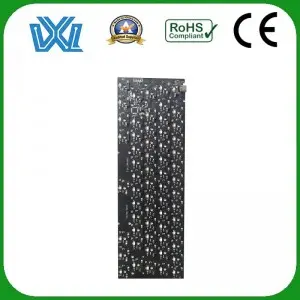For modern electronics, printed circuit boards (PCBs) have become an integral part of the design process. These small green circuit boards are responsible for connecting all the different components of an electronic device together and play a vital role in its overall function.
As the name suggests, a PCB is essentially a circuit board with printed circuits. It consists of layers of copper and other conductive materials sandwiched between layers of non-conductive materials such as fiberglass. These layers are then etched into specific patterns that allow electrical current to pass through the board.
One of the main benefits of using PCBs is that they provide a level of consistency and precision unmatched by other wiring methods. Since the circuits are printed onto the board with extreme precision, there is much less room for error in terms of the electrical connections between components.
Additionally, PCBs are incredibly adaptable and can be designed to fit almost any shape or size, which is critical for modern electronics that are becoming increasingly compact and portable. This flexibility means that PCBs can be used in everything from smart home devices to medical devices.
Of course, like any other part of an electronic device, a PCB requires proper care and maintenance. Over time, they can become damaged or corrode, causing the device to malfunction or stop working altogether. This is why it is important for individuals and businesses to invest in high-quality PCBs and to inspect them regularly and replace them as needed.
Overall, it is clear that PCBs play a vital role in the design and function of modern electronics. From connecting components to ensuring consistent electrical flow, they are an integral part of the technology all around us. As technology continues to advance, it will be interesting to see how PCBs evolve and adapt to meet the changing needs of the industry.
In summary, PCBs are an essential part of modern electronics. They provide precision and consistency unmatched by other wiring methods and are ideal for a wide variety of devices and applications. While they require proper care and maintenance, PCBs will undoubtedly continue to play an important role in shaping future technology.
Post time: Jun-12-2023

